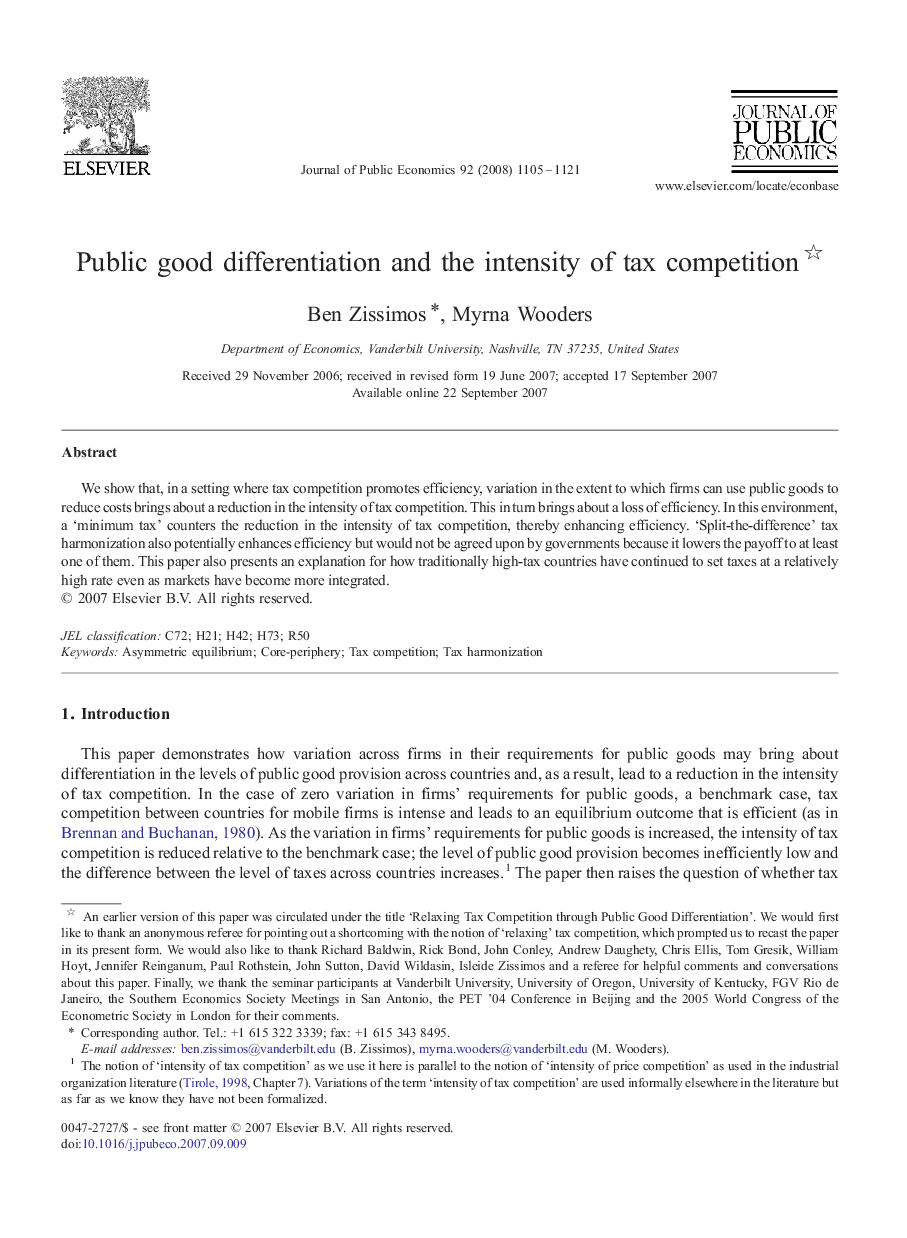| Article ID | Journal | Published Year | Pages | File Type |
|---|---|---|---|---|
| 969902 | Journal of Public Economics | 2008 | 17 Pages |
Abstract
We show that, in a setting where tax competition promotes efficiency, variation in the extent to which firms can use public goods to reduce costs brings about a reduction in the intensity of tax competition. This in turn brings about a loss of efficiency. In this environment, a ‘minimum tax’ counters the reduction in the intensity of tax competition, thereby enhancing efficiency. ‘Split-the-difference’ tax harmonization also potentially enhances efficiency but would not be agreed upon by governments because it lowers the payoff to at least one of them. This paper also presents an explanation for how traditionally high-tax countries have continued to set taxes at a relatively high rate even as markets have become more integrated.
Related Topics
Social Sciences and Humanities
Economics, Econometrics and Finance
Economics and Econometrics
Authors
Ben Zissimos, Myrna Wooders,
